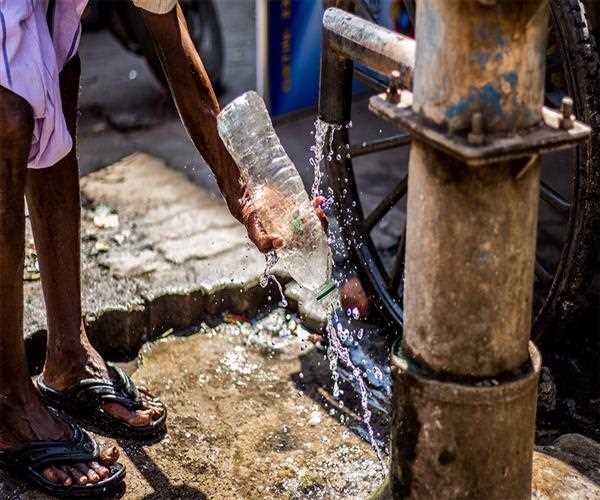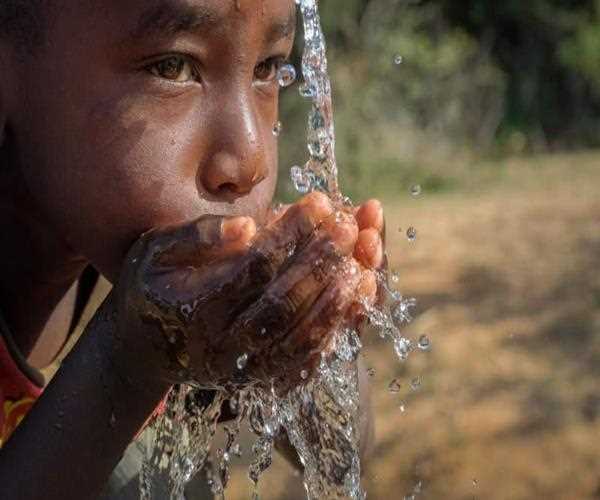
31-Jul-2023 , Updated on 7/31/2023 9:22:33 PM
Access to clean water- Ensuring a basic human right for all
Highlights
- Access to clean water is a fundamental human right, essential for life, health, and dignity.
- Around the world, millions of people lack access to safe and clean drinking water.
- Water scarcity and contamination disproportionately affect vulnerable communities, including those in poverty, remote areas, and conflict zones.
- Lack of clean water contributes to the spread of waterborne diseases, leading to illness and death, especially in children.
- Women and girls often bear the burden of water collection, limiting their education and economic opportunities.
- Sustainable Development Goal 6 (SDG 6) aims to ensure universal access to clean water and sanitation for all by 2030.
- Governments, international organizations, and NGOs play a crucial role in addressing water access challenges through policies, funding, and infrastructure development.
Access to clean water is essential for human health and well-being. It is a basic human right that is essential for life, development, and dignity. Unfortunately, billions of people around the world do not have access to safe and reliable water.
The Problem
According to the World Health Organization (WHO), 2.2 billion people do not have access to safely managed drinking water. This means that they do not have access to water that is free from contamination and that can be safely consumed without the risk of illness.
Another 4.2 billion people do not have access to safely managed sanitation. This means that they do not have access to toilets or other facilities that allow them to safely dispose of their waste.
The lack of access to clean water and sanitation has a devastating impact on human health. It is a major cause of diarrheal diseases, which are the second leading cause of death among children under the age of five. Diarrheal diseases can lead to dehydration, malnutrition, and even death.
The lack of access to clean water and sanitation also contributes to the spread of other waterborne diseases, such as cholera, typhoid, and dysentery. These diseases can cause severe illness and death, especially in children.
The Solution
The solution to the problem of access to clean water and sanitation is to invest in water and sanitation infrastructure. This includes building water treatment plants, providing access to piped water, and constructing toilets and other sanitation facilities.
It is also important to educate people about the importance of water and sanitation hygiene. This includes teaching people how to safely collect, store, and use water, as well as how to properly dispose of waste.
Other proposed solutions-
- Investing in Infrastructure- Governments must prioritize investments in water infrastructure, including building and maintaining water treatment plants, pipelines, and reservoirs. By enhancing water supply systems, clean water can reach more communities.
- Water Conservation- Encouraging water conservation practices among individuals and industries can help reduce overall water demand. Implementing water-efficient technologies and practices can significantly impact water conservation efforts.
- Rainwater Harvesting- Rainwater harvesting systems can be an effective way to collect and store rainwater for various uses, especially in regions with irregular water supply. This can alleviate pressure on existing water sources.
- Improving Sanitation Facilities- Access to clean water is closely linked to proper sanitation facilities. Governments and organizations should work together to improve sanitation infrastructure, thereby reducing the spread of waterborne diseases.
- Water Education and Awareness- Raising awareness about the importance of clean water and its conservation can instigate behavioral changes and promote responsible water usage.
- Community Engagement- Engaging communities in water management and decision-making processes empowers them to take ownership of their water resources. Local knowledge and participation are crucial in sustainable water management.
- Wastewater Treatment and Reuse- Implementing wastewater treatment and recycling systems can ensure the safe reuse of water for non-potable purposes like irrigation, industrial processes, and environmental conservation.
- International Cooperation- The global nature of the water crisis requires cooperation between nations. International agreements and collaborations can foster responsible water usage and equitable distribution.
- Support for Research and Innovation- Continued research and investment in water-related technologies and innovations can lead to more efficient and sustainable solutions for water management and treatment.
The Progress
There has been some progress in recent years in terms of improving access to clean water and sanitation. The United Nations Millennium Development Goal (MDG) of halving the proportion of people without access to safe drinking water was achieved in 2015. However, the MDG of halving the proportion of people without access to improved sanitation was not achieved.
There are still many challenges to overcome in terms of ensuring universal access to clean water and sanitation. However, with continued investment and effort, it is possible to achieve this goal.
The Benefits
Ensuring access to clean water and sanitation would have a number of benefits for individuals, communities, and countries. These benefits include:
Improved health- Access to clean water and sanitation would help to reduce the incidence of waterborne diseases, leading to improved health and well-being.

Increased productivity- Improved health would lead to increased productivity, as people would be able to work and learn more effectively.
Reduced poverty- Increased productivity would help to reduce poverty, as people would be able to earn more money and improve their standard of living.
Improved environmental sustainability- Access to clean water and sanitation would help to reduce water pollution and improve the environment.
Access to clean water and sanitation is a basic human right that is essential for human health, development, and dignity. It is a problem that can be solved with investment and effort. By ensuring universal access to clean water and sanitation, we can improve the lives of billions of people and create a more sustainable future for all.
Here are some things that you can do to help ensure access to clean water and sanitation-
- Educate yourself about the importance of water and sanitation.
- Talk to your elected representatives about the need to invest in water and sanitation infrastructure.
- Support organizations that are working to improve access to clean water and sanitation.
- Make small changes in your own life, such as reducing your water use and recycling water bottles.
- By taking these actions, you can help to make a difference in the lives of millions of people around the world.

SEO and Content Writer
I am Drishan vig. I used to write blogs, articles, and stories in a way that entices the audience. I assure you that consistency, style, and tone must be met while writing the content. Working with the clients like bfc, varthana, ITC hotels, indusind, mumpa, mollydolly etc. has made me realized that writing content is not enough but doing seo is the first thing for it.
Join Our Newsletter
Subscribe to our newsletter to receive emails about new views posts, releases and updates.
Copyright 2010 - 2026 MindStick Software Pvt. Ltd. All Rights Reserved Privacy Policy | Terms & Conditions | Cookie Policy